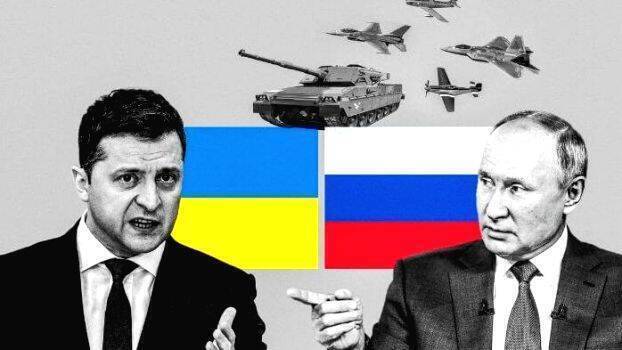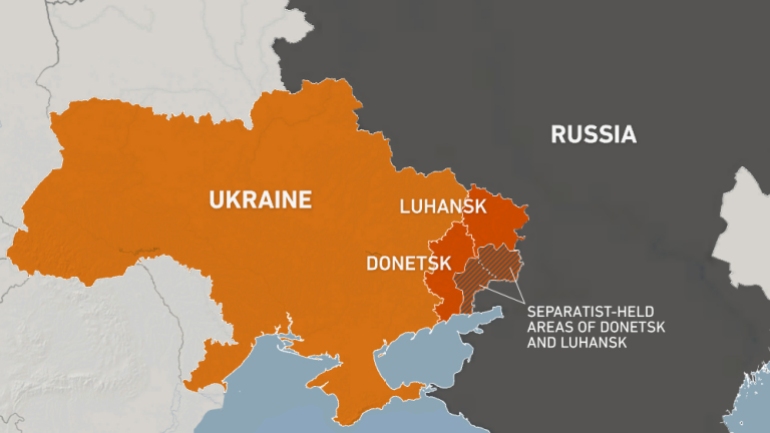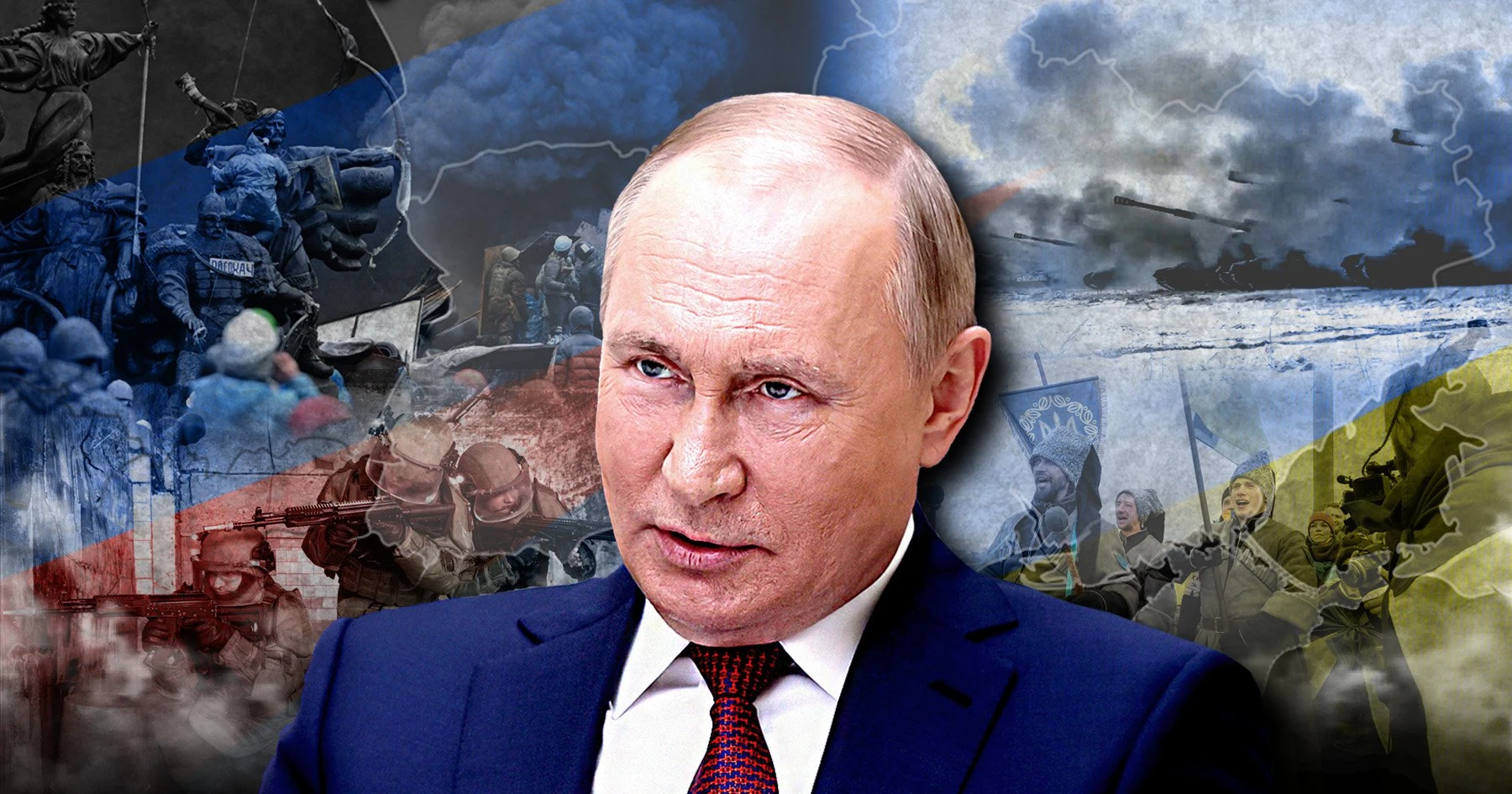
War has always consequences. None can determine what next can occur and where it can lead, including President Putin but he might have plan, how to exit the crisis.
Afzal Panhwar
In the phenomenal manifestation of John Mearsheimer’s theory of Offensive Realism sets forth that in an anarchic international system, the quest for absolute power prolongs at the center of strategic policies. Russia is no exception according to theory, specifically when Moscow has the status of superpower. Moreover, the revival of power politics and conquest of absolute power can be traced in the glimpses of Russian invasion of Ukraine, when an orthodox of former Soviet Union – President Vladimir V. Putin ordered Russian troops positioned near Ukrainian border to invade Ukraine. Putin describes invasion as security concern to Moscow and its geostrategic interests.
In the article “Why the Ukraine Crisis is the West’s Fault” Mearsheimer argues, “History shows that countries will absorb enormous amount of punishment in order to respect their core strategic interest.” He emphasizes, “There is no reason to think Russia represents an exception to this rule.” No great power on earth will ever grant its core and geostrategic interests be threatened. And NATO’s eastward expansion – counting Ukraine in alliance – is concerning security threat to Moscow. NATO enlargements of 1999, 2004 and Bucharest summit April 2008, counting on Georgia and Ukraine in alliance and West intervention in Ukrainian political matters that assisted to overthrow the government of pro-Russian Viktor Yanukovych, former president of Ukraine, have produced a great deal of escalation. In response, Russia annexed Crimea in 2014 to assure west if you expand, Moscow will contract you with full pledge retaliation debt. Time has arrived, for Putin to make West and Ukraine smell the scent of smoke.
 Russia and Ukraine share grand history and culture. In the article “On the Historical Unity of Russian and Ukrainians” Putin writes, “Russian and Ukrainians were one people – a single whole.” He adds “we know and remember well that it [Ukraine] was shaped – for a significant part – on the lands of historical Russia.” The current circumstances have core origin in history and must be analyzed from that perspective. Moscow acquires historic claims over Ukraine as the born place of Rus, a primary developed Russian state in 9th century – that was the period when states of Russia and Ukraine emerged. Russia acquainted itself as the shield for Ukraine against Mongols in the 13th century. Ukraine had been correspondent to former Soviet Russia and remained its part. Even today one in six Ukrainians is actually an ethnic Russian; one in three speaks Russian as his native language. Ukraine, in Russian perception shares heritage and culture and historically Rusi with demographic, historic, cultural, linguistic and economic ties, despite two states share barrier borders.
Russia and Ukraine share grand history and culture. In the article “On the Historical Unity of Russian and Ukrainians” Putin writes, “Russian and Ukrainians were one people – a single whole.” He adds “we know and remember well that it [Ukraine] was shaped – for a significant part – on the lands of historical Russia.” The current circumstances have core origin in history and must be analyzed from that perspective. Moscow acquires historic claims over Ukraine as the born place of Rus, a primary developed Russian state in 9th century – that was the period when states of Russia and Ukraine emerged. Russia acquainted itself as the shield for Ukraine against Mongols in the 13th century. Ukraine had been correspondent to former Soviet Russia and remained its part. Even today one in six Ukrainians is actually an ethnic Russian; one in three speaks Russian as his native language. Ukraine, in Russian perception shares heritage and culture and historically Rusi with demographic, historic, cultural, linguistic and economic ties, despite two states share barrier borders.
“Ukraine has fallen in the arms of West and propagated against Russia. Moreover, Ukrainian ruling elites are deceiving out everything unite us – Russian-Ukrainian, and they manipulate history stressing to rewrite it,” Putin says. Though eastern region of Ukraine is mostly contented Russian speaking and pro-Russia; the Western neighborhood bordering with Eastern Europe is pro-West that shows accomplishing interest to join NATO. The pro-West perception to join NATO, expand to be member of European Union and democracy promotion have added fuel to a fire. A great power Moscow would never let these intentions accomplished that are intimidating and in response to these frightening measures Putin retaliated with hardballs. And he hails explicitly West and those who support Kiev for direct confrontation intervening in the matters of Russia and Ukraine.
 The strategic policies by leaders determine destiny of state and its people. The strategists of Ukraine pursued blundering policies; considering Western rhetoric support for Ukraine that lead Kiev anti-Moscow – a great power and leading nuclear superpower in the world – with it shared border. The ambiguous Western presence illustrates its rhetoric that never intended to intervene physically in war rather left Ukraine alone in horrific battle of remarriage.
The strategic policies by leaders determine destiny of state and its people. The strategists of Ukraine pursued blundering policies; considering Western rhetoric support for Ukraine that lead Kiev anti-Moscow – a great power and leading nuclear superpower in the world – with it shared border. The ambiguous Western presence illustrates its rhetoric that never intended to intervene physically in war rather left Ukraine alone in horrific battle of remarriage.
Nonetheless, the Western comparison between Volodymyr Zelensky, president of Ukraine and Mr. Churchill, former British prime minister, is manipulation of the perceptions of world and more specifically Ukrainian. The Western propaganda through World Wide Web assures moral support rather than dire need of direct military intervention and West would never do that because it has idea and wide experiences in history how devastating it will be, if it decided to go in direct war with a great power, who possesses nuclear capabilities.
Nevertheless, it is essential in realpolitik that a great power should remind its existence to global world in persuasion of crucial glimpses of cruelty that fascinates its power. When it is about absolute power and survival, conventional wisdom has always been admired by policy makers and strategists in security dilemma and persuasion of strategic interests. However, President Putin followed the path to realpolitik and demonstrated accommodation of taking one of the leading roles in great power politics. None has idea what notions are in the mind of Putin, ‘a first-class strategist who should be feared and respected by anyone challenging him on foreign policy.’
No abstract right, for instance, self-determination is appreciable when powerful state pursues a weaker state. Perhaps, the weaker state like Ukraine who shares border and rivalry with great power, should acquire nuclear weapon for security purpose – for instance India acquired in defence against China and Islamabad against New Delhi. The legacy of former Soviet Union disintegration granted Ukraine wide number of nuclear arsenals and survival armaments but manipulating and diplomatic demonstrations halted Ukraine being nuclear power. Moreover, to survive in an anarchic international system, states need power to secure its sovereignty and strategic interests otherwise “The strong do what they can and the weak suffer what they must” (Thucydides).
In consequence, Russian invasion of Ukraine reveals humanitarian crisis; migration of Ukrainian to West pronounced as refugees, devastation of infrastructure and economy, and inflation in European states who depend on Russian gas supplies and other imports. Moreover, war has always consequences. None can determine what next can occur and where it can lead, including President Putin but he might have plan, how to exit the crisis.
_____________
Afzal Panhwar holds an I.R (Hons) degree from University of Sindh. He can be reached at twitter @afzalpanhwar_